- Home
- entertainment
- news
- Hattie McDaniel made history as the first Black person to win an Oscar. But she was racially typecast her entire career, playing a maid 74 times.
Hattie McDaniel made history as the first Black person to win an Oscar. But she was racially typecast her entire career, playing a maid 74 times.
Yoonji Han

- Hattie McDaniel, who played Mammy in 'Gone with the Wind,' became the first Black person to win an Oscar in 1940.
- Some members of the Black community criticized her for not pushing harder against racial stereotypes in Hollywood.
Hattie McDaniel was born in 1983, the youngest of 13 children, to formerly-enslaved parents in Wichita, Kansas.
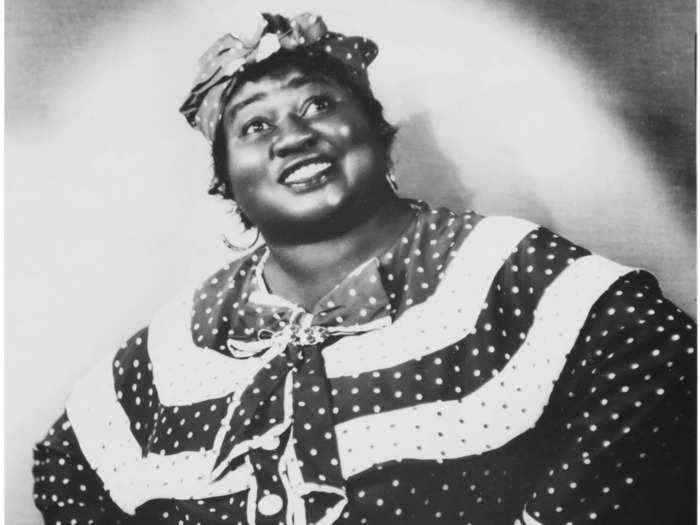
Source: Vanity Fair
McDaniel had an early start as a performer, joining a local minstrel troop and her brother Otis' carnival company in high school.
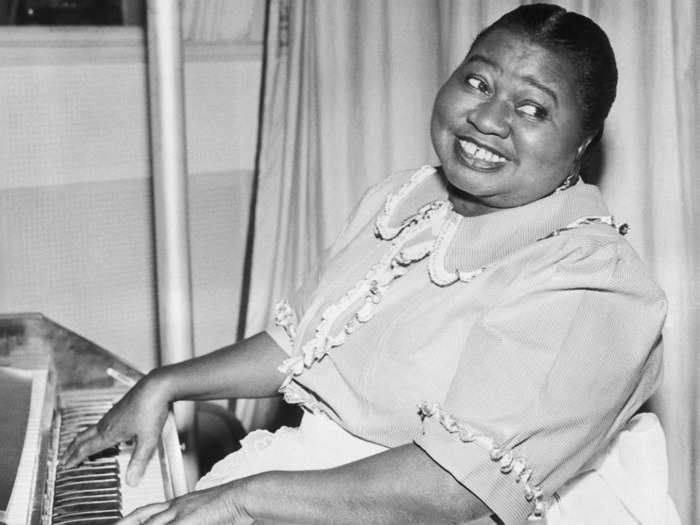
Because gigs as a performer and songwriter didn't pay much, McDaniel took jobs as a maid and laundress on the side to make ends meet.
Source: Colorado Virtual Library
Show business in the early 1900s was a man's world, but McDaniel and her sister Etta launched an all-female 'black-face' minstrel show in 1914 called the McDaniel Sisters Company.
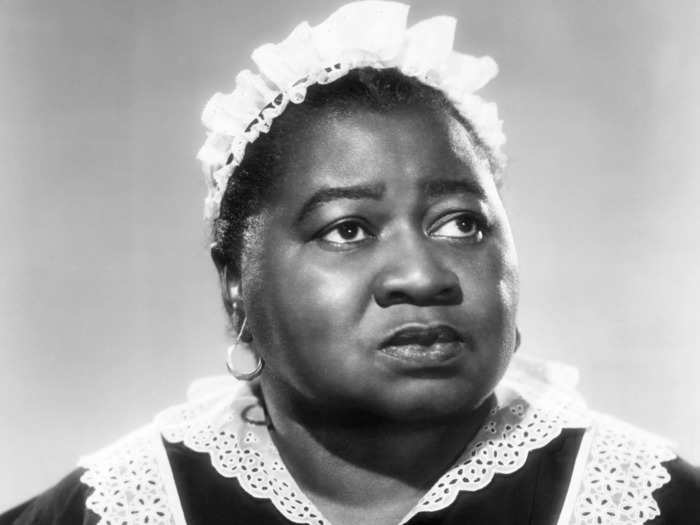
There, McDaniel developed her trademark character: an assertive "Mammy" that poked fun at the racist archetype of a sassy maid.
Source: Vanity Fair; Colorado Virtual Library
McDaniel embarked on a radio career in the mid-1920s. In 1931, she performed on radio as 'Hi-Hat Hattie,' a bossy maid who quips back at her employers.
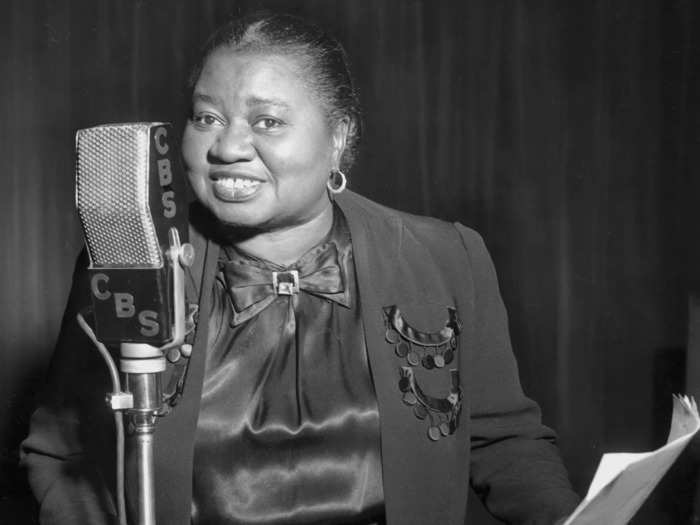
Source: Kansas Historical Society
McDaniel played the role of a maid at least 74 times throughout her career, including in films like "I'm No Angel," "China Seas," and "Murder by Television."
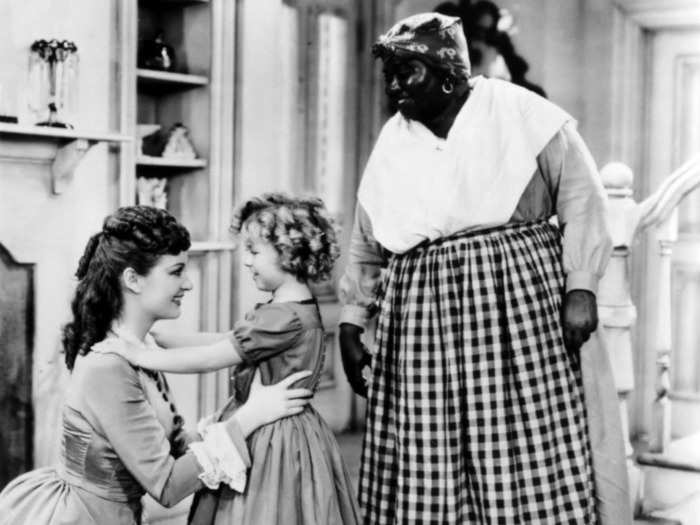
McDaniel nabbed her first speaking part in the 1932 movie "The Golden West," in which she played a maid.
Source: Harper's Bazaar; Smithsonian Magazine
In 1937, McDaniel won the fierce competition for the part of Mammy in 'Gone with the Wind,' even reportedly beating out Eleanor Roosevelt's own maid.
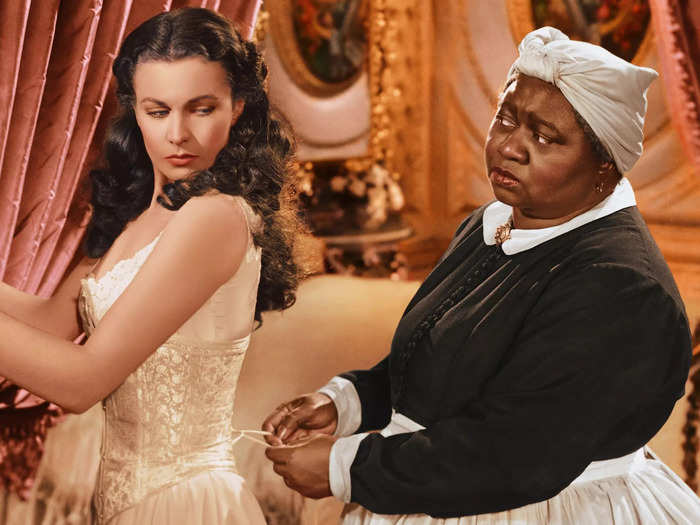
McDaniel went to her audition dressed in a maid's uniform and ultimately secured the part.
Source: Vanity Fair; Harper's Bazaar; Smithsonian Magazine
From the moment the casting was announced, however, McDaniel was criticized by members of the Black community for seemingly acquiescing to racial stereotypes in the roles she played.

"We feel proud over the fact that Hattie McDaniel won the coveted role of 'Mammy,'" wrote the influential Earl Morris in The Pittsburgh Courier. "It means about $2,000 for Miss McDaniel in individual advancement... [and] nothing in racial advancement."
In response, McDaniel remarked, "I'd rather play a maid and make $700 a week than be a maid and make $7.''
Along with other actors, McDaniel pushed back against the use of racial slurs in "Gone with the Wind," and successfully had offensive terms omitted from the final script.
Source: The New York Times; Vanity Fair; The Atlantic
On February 29, 1940, McDaniel made history by becoming the first Black person to win an Academy Award for her role in 'Gone with the Wind.'
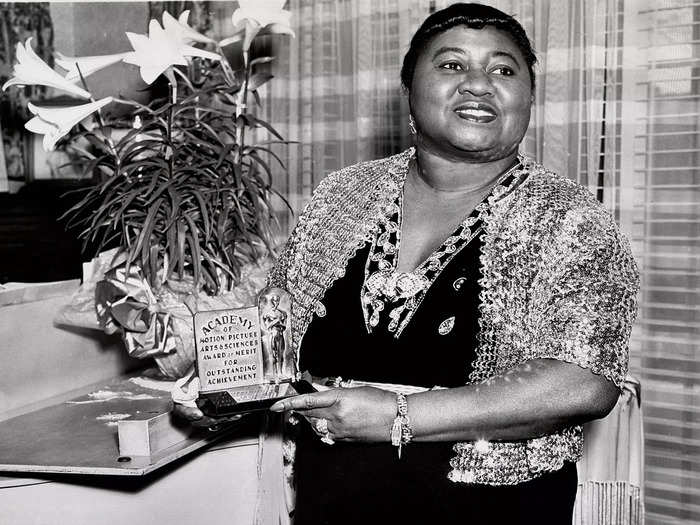
"I sincerely hope that I shall always be a credit to my race and the motion picture industry," McDaniel said in her acceptance speech.
Source: Vanity Fair; Harper's Bazaar; The Atlantic
But during the Oscars ceremony, the award-winning actress was seated separately from her colleagues, at the edge of the room.
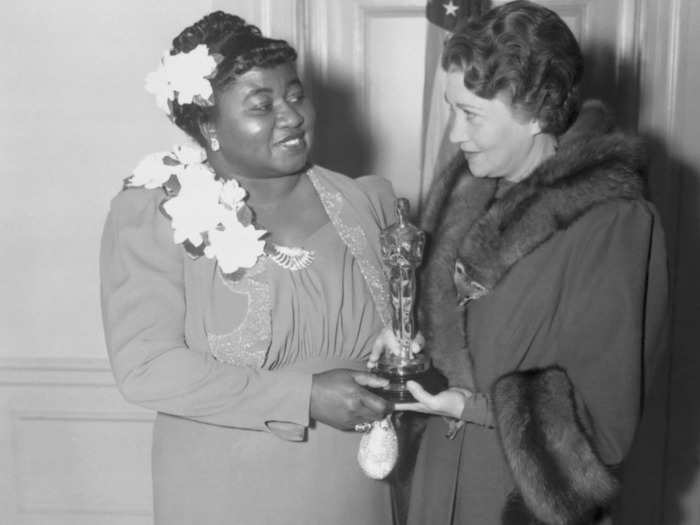
McDaniel was also barred from attending the Atlanta premiere of "Gone with the Wind" due to Jim Crow segregation.
Source: Vanity Fair; Harper's Bazaar; Smithsonian Magazine
Despite backlash from the Black community, McDaniel continued to play domestic maids, including in the 1946 Disney film 'Song of the South.'
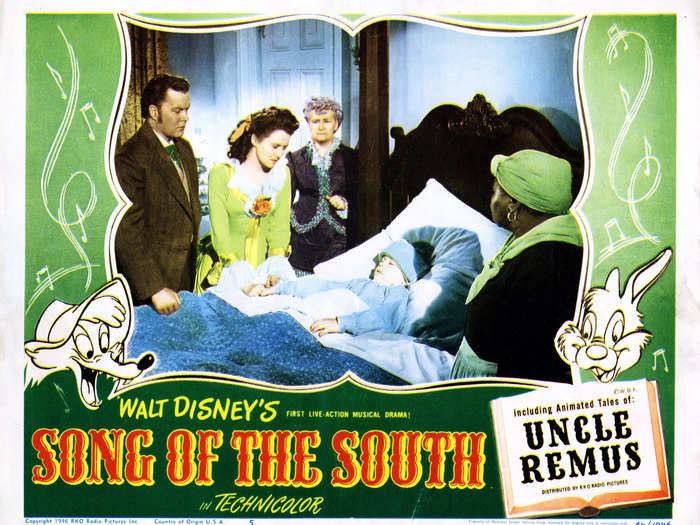
"Song of the South" was heavily criticized for its depiction of Black Americans in a post-slavery era.
McDaniel achieved two stars on the Hollywood Walk of Fame, and shared her success by donating generously to causes like the NAACP.
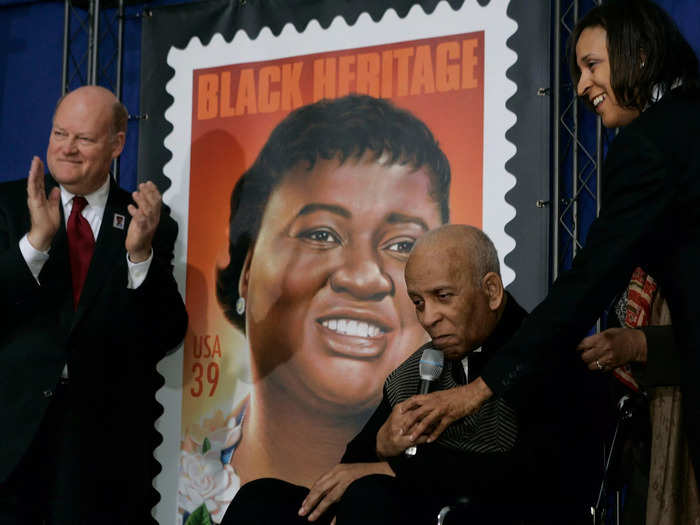
She was also posthumously inducted into the Black Filmmakers Hall of Fame in 1975. In 2006, McDaniel became the first Black Oscar winner honored with a US postage stamp.
Source: ABC News; Hattie McDaniel Estate; Colorado Women's Hall of Fame
McDaniel died of breast cancer in October 1952, but the Hollywood Forever Cemetery owner refused to allow her to be buried there.
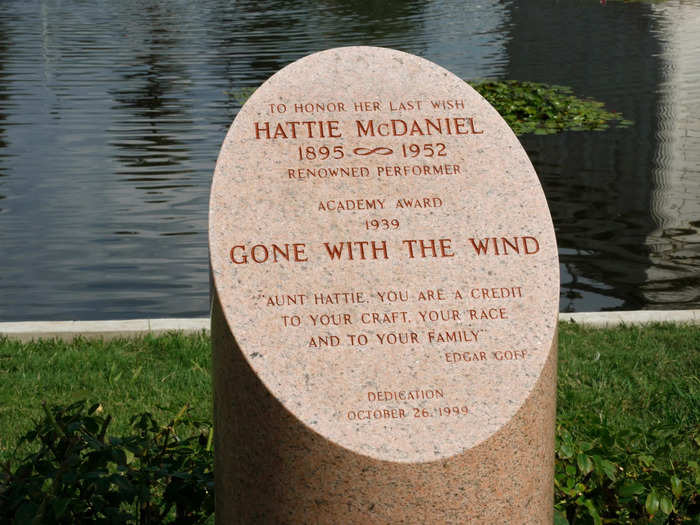
McDaniel had said that she wanted to be buried in Hollywood Forever Cemetery, where white film stars like Douglas Fairbanks and Rudolph Valentino rested. But the original owner of the cemetery refused, and McDaniel was buried in Rosedale Cemetery, her second choice, after her death in 1952.
The current owners of the Hollywood Forever Cemetery later honored McDaniel with a cenotaph.
"Aunt Hattie, you are a credit to your craft, your race, and to your family," the cenotaph reads.
Source: Vanity Fair
Popular Right Now
Popular Keywords
Advertisement